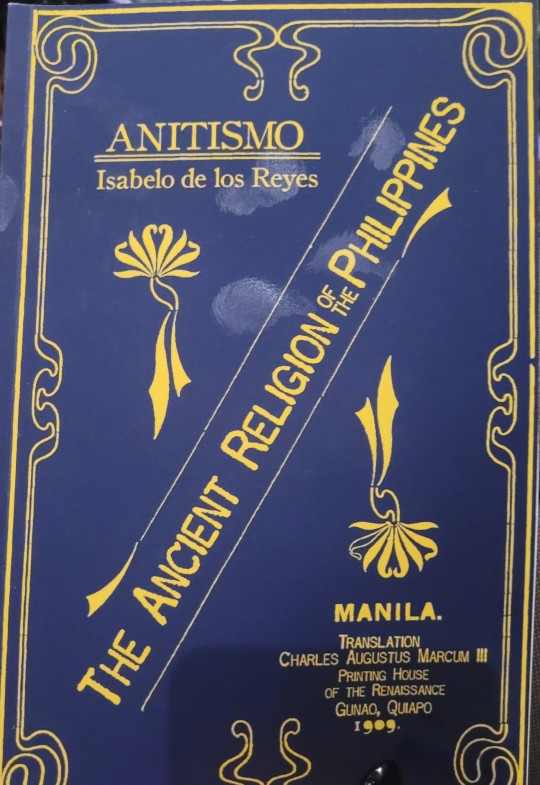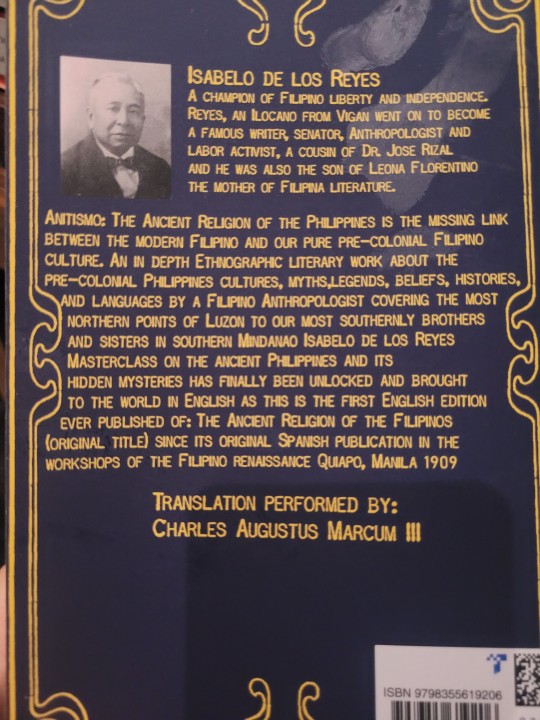#romanistic
Explore tagged Tumblr posts
Text

When you are attracted to the people, it's because of the details... |Old School Romantics
2 notes
·
View notes
Text
you are not immune to the pull of Ciceronian scholarship
#have a running joke with a friend about how every romanist in our department ends up working on cicero sooner or later#and reader that time has come for me
7 notes
·
View notes
Text



T-shirt design by GHOST Graphics for Romanist
#graphicdesign #tshirtdesign #tshirtillustration
3 notes
·
View notes
Text

[ID: A wooden bar in front of a window, looking out on the sidewalk; sitting on the bar are a paper cup of tea, a plate with a large cookie on it, and a pair of (discolored, don't judge me, life is hard) earbuds. It looks like a lovely weekend morning snack.]
There's a new coffee shop in my neighborhood, and I've been meaning to check it out for a while since it looked like it had a lot of good places to sit and work, and while I love going to the library to work on weekends, the study rooms there are super booked full right now. I thought I'd see how I did sitting at the "window bar" and it turns out it's great! I'm not super enamored of the macaroon I got (it's fine, just nothing special) and not a coffee drinker so can't judge that, but the tea and the ambiance are both excellent.
But also like. In the first forty-five minutes of sitting at the bar in the window, I encountered a friend who lives in the neighborhood passing by, a friend who does NOT live in the neighborhood but was down here for the farmer's market and came in to get a coffee, and also a total stranger from Rome who saw me in my AS Roma jacket and came over to introduce himself because he was so stunned to see a Roma fan in Chicago.
Him: Excuse me? I'm from Rome, and I can't believe I see a Roma logo --
Me: AH! DAJE ROMA!
Him: *HUGE BEAM* OH YOU ARE A ROMANIST!
He had thought I might not know what I was wearing, and was so pleased to meet an actual fan. He ended up asking for a selfie with me because his friends didn't believe he'd found an AS Roma fan in midwestern America. :D So I've just blown the minds of a couple of Romanisti, and also got a nice compliment on both my taste in football teams and my pronunciation of Daje (dai-yay!) Roma.
I do love my neighborhood. Sometimes I think I should sell up and move out far enough to be able to afford a real house with a yard and get rid of all the stress that comes with living in a crowded downtown city center, but then I spend a morning out in the South Loop and remember why I put up with all that.
281 notes
·
View notes
Text
very glad to see that the traditional historical narrative of the rise of Islam is being archæologically vindicated or at least revised in the exact fucking opposite direction than the fucking romanists would want
10 notes
·
View notes
Text
Honey I'm really sorry but while you were out I found a nest of WASPs in the back garden and as I was going in to get chemicals to deal with it I accidentally left the door open and a WASP got into the house and now he's flying around calling our air friar a romanist while the air friar yells at him about heresy
99 notes
·
View notes
Text
49 words written today -- lots of grading today, and I didn't get it all done so guess who gets to grade on Christmas! (I could have finished it today, except I'm trying to wait until the absolute last minute for a missing assignment so I'm letting the last three other papers wait too because I was hitting my "Fs for everyone" point.) also read two Lindsey Davis novels -- I read all the Falco mysteries back when I was in college, but haven't reread them since. Curious to reread them since now I am a ✨professional Romanist✨. also all my hard copies are here.
8 notes
·
View notes
Text
Notes on Anitismo - The Ancient Religion of the Philippines by Isabelo de los Reyes.


Keep in mind - this was written a while back.
Ancient Chronicles written by the Jesuit hispanic Friars state that at the that the first spaniards set foot in the Philippines from the coast of visayas to Manila there was a considerable population of Muslim converts
This was especially true for Mindanao due to conversion by Islamic teachers from Borneo
De los Reyes argues that because of this, to find native Filipino religion at its purest, we must look to the North
Distinguishing native religion without outside influence such as from Islam, Hinduism, Christianity etc can be tricky
However he argues that the traces of Native Filipino religion can be found in the stories superstitions and advice that belong to various Filipino ethnic groups (Tagalogs, Bicolanos, Zambalenos etc)
From the South of the country in Mindanao to the extreme North like Luzon, De los Reyes argues then native Filipino religion was consistent
This religion was Anitism or the Cult of Anito, meaning souls of the ancestors.
Anitism is not a monolithic religion and hosts a broad pantheon ranging from Gods to animals, nature, elements and space.
The Philippines had its own modern spiritism and De los Reyes argues this may have been the origins of the cults of "Romanist Saints" (Catholic saints) in the Philippines. By this I think he means that Filipino spirituality influenced how Filipinos proceeded with Catholic worship.
The oldest chronicles about the Philippines can be found in various museums and libraries (such as the National Library of Madrid, Covenant of St Augustine in Manila)
We can follow these chronicles, from when the Jesuit Pedro Quirino provided news of religion in the Philippines in 1604, followed by reproductions by others like the Jesuit Colin in 1663 and others such as Fr. Morga, Gonzalez de Mendoza, Aduarte etc.
Fr Morga said that Filipinos practised Anitism in certain regions like Camarines and Cagayan.
Some traditions would say that Manila and its regions were not originally native to the island - they were from Malayan islands and other remote areas.
Before the Spaniards arrived, Islamic teachers from Borneo came to preach and interacted with the locals
Their teachings and beliefs spread quickly throughout the Philippines
Fr. Grijalva writes that they (Filipinos) started adopting their traditions and took on their names.
De Los Reyes argues that Spanish conquistadors' arrival/conquest was delayed because Filipinos were already familiar with various religions and beliefs and also because of the hands of Datu Lapu Lapu. What I believe he is arguing is that Datu Lapu Lapu and the previous exposure Filipinos had to different religions at first delayed Spanish influence from spreading so quickly.
Other islanders who weren't under the control of the government in the Philippines has their beliefs influenced by religious preachers who travelled to them from the Straits of Malacca and the Red Sea.
An account, dated April 20th 1572 (preserved in the archives of India) which is from the conquest of Luzon details "In these towns, closest to the sea, they do not eat any pork, which the moors taught them. But if you ask them, they say they do not know Muhammed or his law." This account was reproduced by Wenceslao Retana.
In actuality, very few Filipinos could understand/read the teachings of the Koran despite the Islamic influence.
In Filipino traditions, reverence and worship was given to nature and the elements, and this was usually consistent throughout the islands.
Native Filipino religion beliefs include elements, animals, stars and ancestors.
Filipino religion in Manila and nearby areas was a mixture or Anitism, Buddhism, Hinduism and Islam brought by the Malays of Borneo.
Vocabulary included Sanskrit and Malay terms such as Bathala, meaning Lord.
However these terms are not used in Northern provinces.
De Los Reyes argues that Itnegs and other mountain tribes conserved and maintained the purest form of Filipino religion
In the Ilocos, Cagayan, Isabela and other provinces of Northern Luzon, native Filipino religion was more prevalent
Hindus and Buddhists converted many in Java and Malaysia.
However Muslim influence became dominant in 1478 - 60 years before the Dutch invasion.
According to Javanese legends, Hindus arrives in Java 78 years before Christ.
The first Malays came from the Minangkabau river region to establish cities in Malacca , Ojohor and Singapore in the 12th century, as per Malacca records.
In the 13th, 14th and 15th centuries, there were various Malaysian emigrations reaching the Philippines
De Los Reyes argues that Filipinos may have also populated the islands of Malaysia, and emigrations could have originated from strong winds coming down from the North.
The first Spaniards found the son of Lakandula, King of Manila, when they went to Borneo.
The emperor's master of ceremonies from Japan (Mr Fujita) argued that emigration likely came from the north and that Filipinos may have some relations to the Japanese.
According to Geographers and Historians of the Mariana Islands, what De Los Reyes calls the "know it all Spanish" - had no idea about interesting ruins found in Oceania, one of which was a prehistoric statue that was being held in the British museum.
He argues there may be hidden megaliths, artefacts, and remnants of lost civilisation in the Philippines, as seen in various locations such as : Butacan caves, Pangibalon Hill, Madias de Iloilo and Nasso.
#Philippines#pre colonial philippines#Filipino#Filipino history#Anitism#Filipino religion#Pinoy#Isabelo de los Reyes#History#Asia#Asian history#South east Asian history#Religion#ancient religion#South east asia#Colonialism#spanish colonial#Spanish colonialism#Philippines history#Philippine history#Anitismo#Keep in mind this was written a while ago so some terms may be outdated#I've tried to interpret some tricky parts the best I could#My ass who is from the Northern Philippines 🗿
68 notes
·
View notes
Text
For a long time--the better part of a decade, in fact--I've grappled with the question: "In my heart of hearts, am I a Hellenist or a Romanist?" Finally, I've decided that the correct answer is "Yes".
33 notes
·
View notes
Text

not to get romanists hopes up but what if this is the last shot of roman saying goodbye to waystar/the mess etc
42 notes
·
View notes
Text
notorious medieval romanist, gregory of nyssa
3 notes
·
View notes
Text

Stand Firm …14To this He called you through our gospel, so that you may share in the glory of our Lord Jesus Christ. 15Therefore, brothers, stand firm and cling to the traditions we taught you, whether by speech or by letter. 2 Thess 2:14-15
Cambridge Bible for Schools and Colleges15. Therefore, brethren, stand fast) So then (R.V.), as in 1 Thessalonians 5:6 (see note): the practical conclusion in which the Apostle gathers up all he has been saying in this letter. “Since the Lord’s return is delayed and its time uncertain, and in prospect of the coming of Antichrist, whose deceptive influence is already secretly at work,—inasmuch as God by our means has made you heirs of His glorious kingdom—Stand Fast.” Comp. 1 Corinthians 15:58; Colossians 1:23,—where, as in this place, hope is the incentive to steadfastness.
and hold the traditions which ye have been taught] “Hold” is an emphatic word: stand firm and hold fast (Ellicott) gives the Greek sense more adequately.
In traditions which you were taught there is no suggestion of the Romanist idea of Tradition, conceived as an authority distinct from the written Word of God; for the Apostle continues, whether by word or latter of ours (the pronoun belongs to both nouns). He bids them hold by what he had taught, whether it came through this channel or that, provided it were really from himself (comp. 2 Thessalonians 2:2, and ch. 2 Thessalonians 3:14; 2 Thessalonians 3:17). He is now beginning to communicate with the Churches by letter, and stamps his Epistles with the authority of his spoken word. The sentence asserts the claim of the true Apostolic teaching, as against any who would “beguile” the Church away from it. Comp. 1 Corinthians 11:2 : “I praise you that in all things you remember us, and hold fast the traditions, even as I delivered them to you.”
The Apostle’s “traditions” included, besides doctrine, also the “charges” (or “commands”) he gave on matters of morals and practical life (ch. 2 Thessalonians 3:4; 1 Thessalonians 4:2). The body of Christian doctrine, brought to its finished form, he calls in his last letters “the deposit” (1 Timothy 6:20; 2 Timothy 1:12; 2 Timothy 1:14); while his practical teaching is “the charge” (or “commandment”), 1 Timothy 1:5; 1 Timothy 1:18.
4 notes
·
View notes
Text
.
#this year has been about realizing that I really am a much better romanist than I am a hellenist#like I knew that when the year began but I know it so much more now
4 notes
·
View notes
Text
Cappuccino at work: -tired, serious, makes sure his evidence is perfect, blushes at sudden teases from Caramel Macchiato, who needs water I got my 10000000 cups of cappuccino, rarely asks Caramel for cuddles on the office couch just to relieve stress-
Cappuccino at vacation: -Cool surfer, smiles most of the time, Is actually a romanist, plays the ukulele, out going, teases back Caramel Macchiato and surprises her with his easygoing side, He’s the one who pulls her in for cuddles on the beach chairs and takes in every single bit of her-
Im so sure Cappu is a totally different person when he’s on vacation
22 notes
·
View notes
Text
There is, to me at least, a pervading cliquishness about these tiny little hyper-exclusionary states (which somehow does not seem to have lent them any particular cohesion, given the frequency of stasis within poleis). We haven’t talked much about the foreign relations of poleis yet, but the language that emergences from Greek diplomacy is one of blunt realpolitik in most cases, “the strong do what they will, the weak suffer what they must” (Thuc. 5.89), even when directed at other Greeks. At the same time, these were self-governing communities, understood to be governed by their citizenry which while not infinitely broad were nevertheless far broader than the hereditary monarchies or aristocracies that are far more common systems of social organization in the pre-modern world. There is, I think, a valuable lesson there, that democracy does not necessarily produce an open, welcoming society; a state can be ‘democratic’ amongst its citizens and at the same time closed and xenophobic, as most poleis seem to have been. Of course as a Romanist I would be remiss if I didn’t also note the other lesson: these small, closed poleis and their institutions were, in the end, incapable of resisting larger and more expansive societies, first Macedon and then the Roman Republic.
-Bret Devereaux, How to Polis 101
11 notes
·
View notes
Text
Newman's grave was opened on 2 October 2008, with the intention of moving any remains to a tomb inside Birmingham Oratory for their more convenient veneration as relics[35] during Newman's consideration for sainthood; however, his wooden coffin was found to have disintegrated and no bones were found. A representative of the Fathers of the Birmingham Oratory alleged that this was because the coffin was wooden and the burial took place at a damp site.[113] Contemporary sources show that the coffin was covered with a softer type of soil than the clay marl of the grave site.[114] Forensic expert John Hunter, from the University of Birmingham, tested soil samples from near the grave and said that total disappearance of a body was unlikely over that timescale. He said that extreme conditions which could remove bone would also have removed the coffin handles, which were extant.[115]
2 notes
·
View notes